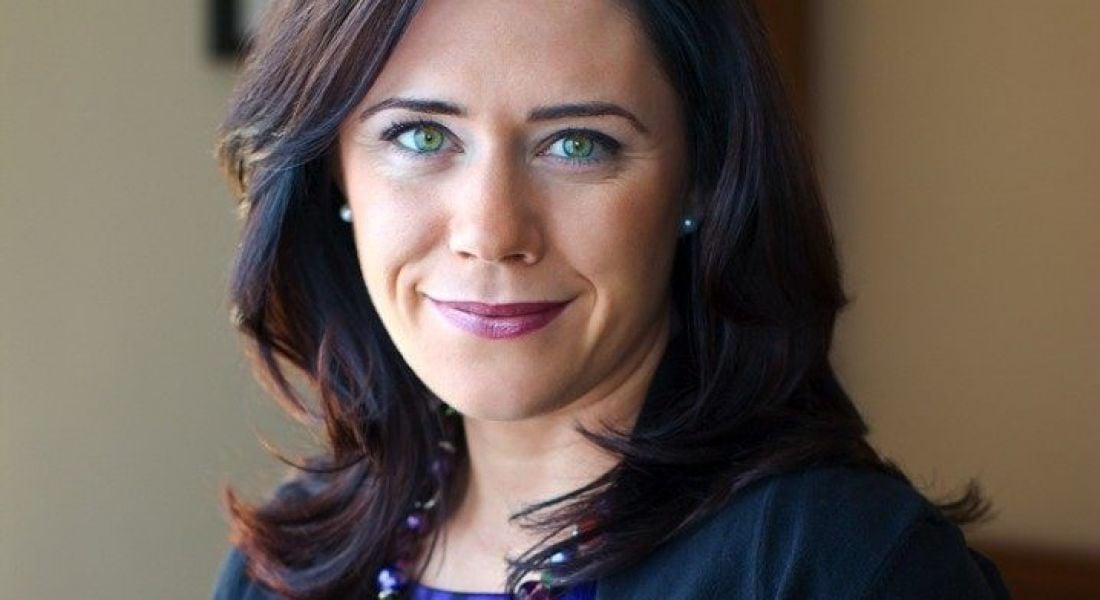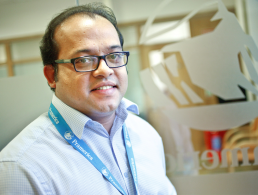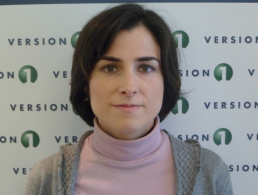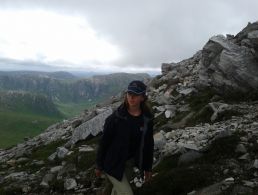Ahead of her presentation on a personal journey in leadership at Inspirefest 2017, Dr Anita Sands spoke to Elaine Burke about her incredible career.
“When I look back on my career to date, somehow the disparate parts all seem to thread together, and it’s certainly allowed me to create an interesting value proposition as a board director,” Dr Anita Sands responded when I quizzed her on her broad (to say the least) career history.
Sands’ career has enjoyed what she calls a number of “pivots”. Firstly, from physics into public policy, then from academia into financial services, and, finally (for now), from technology to the boardroom.
Each of these shifts, said Sands, was driven by “an innate intellectual curiosity and a willingness to take some chances and embrace change”.
“I think the other factor is that most of my career has been outside of Ireland and I was very fortunate that, at every stage, someone from the Irish community – another member of the diaspora – was kind and generous enough to take me under their wing and give me the guidance I needed to succeed at that point.”
And so charts the winding journey of Dr Anita Sands from Louth to Silicon Valley – exploring all seven continents in between – and now the boardrooms of no less than three public tech companies: Symantec, Pure Storage and ServiceNow.
‘I fundamentally believe that we have an obligation to “lift as we climb”, as we still have a long way to go before we reach any kind of parity of representation in the tech industry’
– DR ANITA SANDS
It’s this latest role, in a long CV, that Sands singled out as her career highlight.
“[I’m finally] in a place where I can give a voice to those who don’t have one and can stand up for the things I believe in, most important of which is continuing to support efforts at all levels of the tech industry to create more inclusivity and equality for people from all diversity of backgrounds – gender, ethnicities etc,” she said.
“As senior women, I fundamentally believe that we have an obligation to ‘lift as we climb’, as we still have a long way to go before we reach any kind of parity of representation in the tech industry. Right now, just 0.7pc of the Russell 3000 boards have reached gender parity in terms of directors. So, when I look at my six-month-old baby daughter, I know that it’s up to those of us in positions of influence right now to do all that we can. After all, we’ll only know we’ve reached gender equality whenever there are mediocre women at the top!”
Balancing acts
The decision to start a family is not something someone on Sands’ career trajectory could take lightly, but when I asked what is her proudest achievement, she told me: “The decision process I went through, and the compromise that I had to make in my own head and heart to put my personal and family life at the top of my priority list at a certain point in time.”
Her aforementioned baby girl, Rosie, has arrived as Sands enters her forties, though she is also stepmother to five “incredible young adults”, each of them “wonderful millennials”.
“I say with great pride that I actually have two red-headed stepchildren!” she joked.
With parenthood shifting her objectives, Sands has found “a new chapter professionally that’s turned out to be both exciting and rewarding”, but she’s right to be concerned about what kind of foundations are being laid down for her daughter.
‘There’s no question that there’s an ample number of wonderfully qualified women, ready for board service, but the recruiting process is where the problem begins’
– DR ANITA SANDS
Silicon Valley has become the crucible of the gender diversity debate with nary a week gone by in recent months without a new scandal hitting the headlines. We’ve seen board members, CEOs and investment leaders outed and ousted for unacceptable behaviour – and the long, hot summer is only just getting started.
However, Sands’ view has not been narrowed by the fracas in her new hometown. “Unfortunately, the issue of gender disparity on boards extends far beyond Silicon Valley, and it begins with the fairly abysmal statistics around the representation of women and minority groups on boards,” she said.
“I wholeheartedly believe that, when it comes to putting women on boards, it’s not a supply-side problem. It’s a demand-side process problem. As long as we keep recruiting board directors predominately from the network of current directors, we’re going to continue to perpetuate the issue.
“The other issue is that a lot of board searches insist on candidates being sitting or former CEOs, or having prior board experience – and guess what? That pool doesn’t include a lot of women! There’s no question that there’s an ample number of wonderfully qualified women, ready for board service, but the recruiting process is where the problem begins that results, ultimately, in such skewed numbers.”
Non-inclusive micro-behaviours
Sands appears to be fortunate enough not to have suffered discrimination on a personal level, but she’s not fooled into thinking that means it doesn’t happen, and sometimes the perpetrator might not even realise what they’ve done. “Maybe I’m naïve, but I like to believe that there’s rarely mal-intent behind people’s actions or comments. Yes, there are certainly work environments and situations where that is not the case – where the culture is so toxic that there is an explicit level of bias, exclusion and discrimination – but I don’t find that to be pervasive at the board level,” she said.
She believes our tendency to bed down in our comfort zones can result in “micro-behaviours” that can be unwittingly non-inclusive.
“I like to joke that there needs to be a class in the use of American sports analogies for us non-US directors! You wouldn’t believe the number of times baseball terms are used to describe business outcomes, which used to leave me having to ask for an interpretation.
“My way of dealing with it is usually with a bit of pointed humor. I make my point known, and bring awareness to the matter, and fortunately have found my colleagues to be incredibly receptive and apologetic – if not, at times, completely unaware! If you don’t speak up, things go unnoticed,” she advised.
Cognitive diversity
For Sands, diversity is a means to an end, but it’s not an end in and of itself.
“The outcome we are trying to get to is ‘cognitive diversity’ because it’s proven that cognitively diverse groups make better decisions,” she explained.
“This kind of diversity has little or nothing to do with gender. In my own personal case, I would contend that the fact that I grew up in Ireland, until recently lived in NYC, worked in financial services, and have a very different educational background to a lot of Silicon Valley board directors; that those factors enable me to contribute to the cognitive diversity of the boards on which I serve long before my gender ever will.”
‘To say people are too old or too young for board service is somewhat arbitrary – after all, I’m not sure too many companies would object to having Warren Buffet, who’s 85, or Mark Zuckerberg, who’s 35, join their board’
– DR ANITA SANDS
Age is another increasingly important variable, Sands added. “There is plenty of debate over the use of age limits or term limits to encourage board turnover. I think at best, those are catalysts and at worst, crutches. What matters are ‘relevance limits’: do you have the right board with the right skills for the next phase of the company’s growth? And this is where age can be an important factor, but it’s only one factor.”
In fact, Sands sees her and her peers’ skills as directors “decreasing rapidly” with advancing years, owing to the quickened pace of disruption and technological advances.
“We need a balance of perspectives in the boardroom, and that means people with tenure and experience who have a wide breadth of experience and lots of institutional knowledge and history, along with directors from younger generations who reflect the expectations and ‘voice’ of future customers and employees. To say people are too old or too young for board service is somewhat arbitrary – after all, I’m not sure too many companies would object to having Warren Buffet, who’s 85, or Mark Zuckerberg, who’s 35, join their board! It’s all about balance and getting to the right mix of cognitive diversity.”
Getting help when you need it
Intriguingly, Sands said that the biggest singular challenge of her career so far has been finding the assurance and confidence “not to let my past define my future”.
“As a leader, you have to continually grow and stretch yourself, and there’s no growth without growing pains,” she said.
Confidence, Sands explained, is knowing that, one day, those things you find challenging will become second nature, while also knowing how to ask for help when you need it.
“It’s a sign of strength, and not weakness, to ask for help and I’ve been fortunate that, at each stage of my journey, I’ve had terrific mentors who were incredibly generous with both their time and their wisdom. But I also had the humility to seek that mentorship when I needed it, and, moreover, to listen to it. After all, what’s the point in having great mentors if you’re not willing to listen to those who have been down the path ahead of you?”
Sands herself is an adviser to various start-ups, as well as an active angel investor, and often warns first-time CEOs that it’s lonely at the top. “Nothing can prepare you for the loneliness of leadership, but I think entrepreneurship is the loneliest journey of all. You face so many difficult decisions, and setbacks are inevitable. You have to have real conviction and tenacity to prevail,” she said.
Seismic shifts
Owing to her current position, Sands is most interested in the fresh players entering the enterprise software game, and she’s an excited spectator. “No question, the world of enterprise IT is going to undergo a seismic shift over the next five to 10 years. You can already see it happening,” she said.
‘Every company is starting to increasingly appreciate that they’re in the technology business, whether they wanted to be or not!’
– DR ANITA SANDS
“Visionary CIOs are figuring out new architectures: how to migrate their current estates to the cloud and how to leverage some of the SaaS providers, whether it’s Salesforce, ServiceNow, Workday or any number of the other emerging players. Platform is the new power word in the land of the enterprise, and it’s going to be fascinating to see how all that plays out over the next few years.”
Sands noted that there are so many significant trends to watch out for that “it’s mind-blowing”.
“Infrastructure is being completely redefined. Containers and micro-services are changing how applications are developed. DevOps is undergoing a radical renewal. Open source is seeing a resurgence. And every company is starting to increasingly appreciate that they’re in the technology business, whether they wanted to be or not!”
Find your voice
All told, Sands’ career is matched by her personal life for variety. She has travelled the world, including an expedition to Antarctica, and has studied music in London and physics in Belfast. She believes “without a doubt” that having and maintaining many interests and passions helps her to have a well-rounded outlook on leadership and business.
“Travel expands the mind and I try to encourage everyone I coach and mentor to take time-outs between jobs if they can afford to. It’s very hard to formulate your next move or next chapter when you’re still fully immersed in the current one,” she said.
With so much experience to draw from, there’s one achievement from her very early days that she has benefited from time and time again. “The singular most valuable thing I ever did was get into public speaking when I was in secondary school. I’ve competed in it, have done exams in it, and at one point trained to teach it,” she said.
“Developing that skill at a young age helped me to find my ‘voice’ early in my career. It meant, when I had a point to make, I had a level of confidence and articulation that belied my years or my experience. And, even to this day, it’s an incredible asset to have in my board work.”
Her final word of advice: “I would say to all women, at any age or stage, be willing to invest in yourself. And if there’s one area where you are guaranteed to reap dividends, it’s in being able to communicate with confidence.”
Dr Anita Sands will be speaking at Inspirefest, Silicon Republic’s international event connecting sci-tech professionals passionate about the future of STEM. Book now to join us from 6 to 8 July in Dublin.




